Graham Reid | | 3 min read
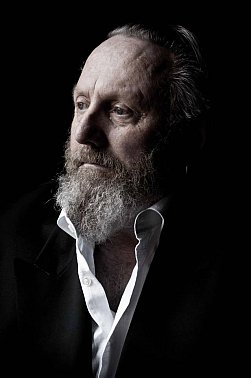
I didn't know Bernie Griffen all that well, enough to say hello and chat with on occasion. It wasn't until his recent death I remembered how far back we went, right back to his period managing Global Routes Music about 30 years ago.
I'd written about the albums he distributed and his own Gunslinger Ball concerts.
I also reviewed his albums, the few that there were and interviewed him a couple of times.
And once a few years back – maybe sic or seven – there had been a Q&A organised with Bernie at the Auckland City Art Gallery and I was invited to conduct it. I recall it was a lunchtime and of course embarrassingly few people were there when we started in a large room, but then people trickled in and those who stopped were taken with Bernie's rough'n'ready honesty.
He was a man impossible to dislike for that, and his unrepentant past and enthusiasm for the music he loved.
He championed the downtrodden because he knew all about that and his work in drug rehabilitation was discreet but important.
I was asked to write about his passing for the Listener and in the limited space available to encompass a long and diverse life, I wrote this . . .
.
Bernie Griffen was a late bloomer. His first album Everything So Far didn't come until he was 60.
Griffen – who died at 72 on August 9 – might have been late to recording but music was the pulse of his life.
He brought hard-won experiences, fragility or gravitas to his small but respected catalogue of sometimes appealingly unpolished folk and alt.country songs for his bands the Grifters and Thin Men.
“I'd wanted to be a musician since I was a kid and played a lot of folk music live in my teens,” he said in 2011. “But by the time I was 20 I just couldn't do it anymore. I felt too exposed.”
Griffen was born into a Catholic family in Wellington, sang in the church choir, picked up acoustic guitar and like many of his generation was swept up by rock music.
He played in folk clubs, lost confidence but found drugs (“I always covered my fears with alcohol or narcotics”), served two terms time in prison and in the mid 70s left for Melbourne where he played in bands. He then spent six years as a commercial fisherman out of remote Karumba in northwest Queensland.
On returning home he and friends established Progressive Music Studios in central Auckland and made music, notably with the appropriately named Pleasure Boys. However drugs were still the prop.
His life turned around after meeting journalist Kirsten Warner who became his musical and life partner.
“I cleaned up in '87 and a few years into my recovery started to write songs and doing the songwriter nights. I kept going until I felt better about myself. I had to stop listening to my own head which was my destructive place.”
An avid reader, he admired Neil Young, Woody Guthrie, the Band, John Lennon and numerous Americana artists for their honesty, a trait he valued.
He didn't spare himself in that regard. A decade ago he spoke of being abused by a priest when young (obliquely referenced in the Thin Men's Burial Ground) and many songs on the Thin Men's 2018 album Doors Wide Open address mortality.
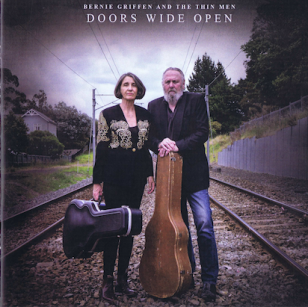 Griffen's long career encompassed more than his own music: he established Sun Pacific Records; found an outlet for his enthusiasm at Auckland's 95bFM with his long-running Border Radio show championing local and alternative country artists; became a partner in Real Groovy's distribution company Global Routes Music (which folded in 2008) and as the music industry went into decline was a prime mover behind establishing Independent Music New Zealand. He became became its first chairman.
Griffen's long career encompassed more than his own music: he established Sun Pacific Records; found an outlet for his enthusiasm at Auckland's 95bFM with his long-running Border Radio show championing local and alternative country artists; became a partner in Real Groovy's distribution company Global Routes Music (which folded in 2008) and as the music industry went into decline was a prime mover behind establishing Independent Music New Zealand. He became became its first chairman.
He organised the The Gunslinger's Ball concerts (“to give profile to people who didn't have one, and have fun”) and was a tireless advocate for independent artists and labels. He knew about being a struggling outsider.
And he played, wrote and eventually recorded his own songs.
The Grifters never had a hit but 29 Diamonds, a raw tribute to the men lost in the Pike River tragedy, is timeless: “29 diamonds for a chunk of coal . . . the youngest one was 17, and as full of life as you've ever seen, 29 dead for a chunk of coal”.
Many of Griffen's songs were cathartic, topical, dark and deeply personal. They were also honest and people respected that.
He suffered ill-health (asthma, emphysema, stomach ulcers, a near-death experience on a 2016 flight to London) but his 2014 album was named Salvation because “that's the way I feel about music and my life to a large extent, I've been blessed.”
At the 2019 Taite Music Prize, then-Prime Minister Jacinda Ardern presented Griffen with the inaugural Independent Spirit Award recognising someone “who assists our musicians to grow and find their own unique pathways”.
Bernie Griffen did that, and more.
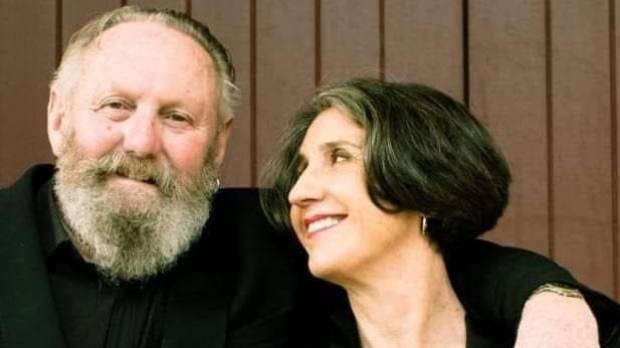 Recent online comments from scores of musicians, friends, fellow travellers and those knew him only through radio all attest to the courage, self-deprecating humour, tenacity and talent of someone they called by his first name.
Recent online comments from scores of musicians, friends, fellow travellers and those knew him only through radio all attest to the courage, self-deprecating humour, tenacity and talent of someone they called by his first name.
His partner of more than four decades Kirsten posted simply: “My darling Bernie has gone, no more cheeky laughs!”
.
Albums by Bernie Griffen and his bands are available at bandcamp here

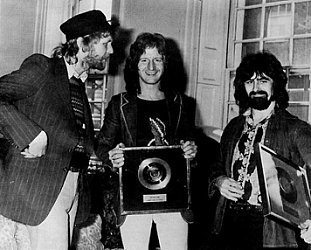


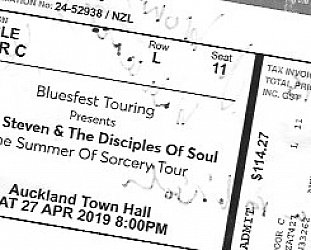
post a comment